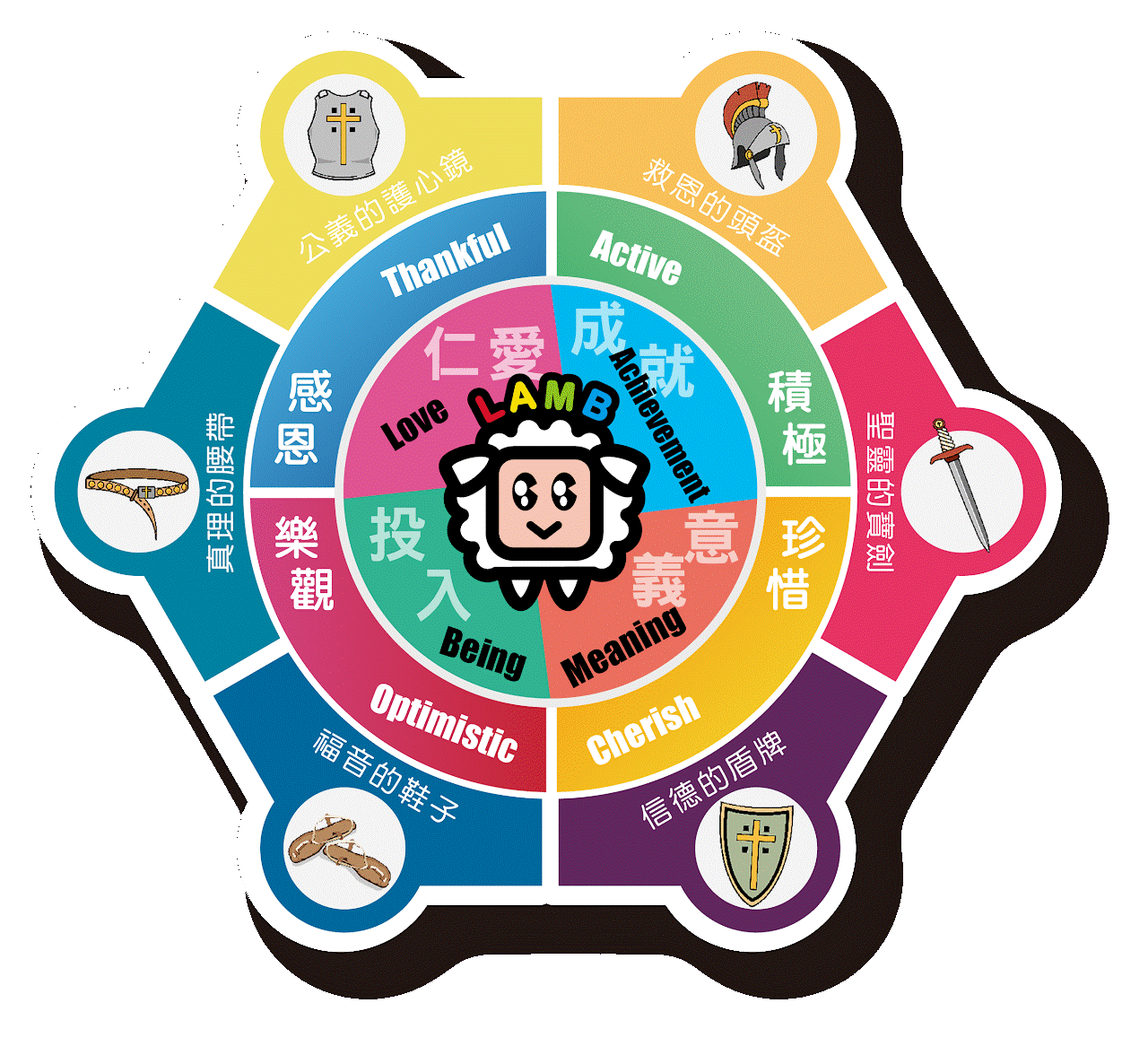Positive education
‘Together we nurture the lives of our students. Hand in hand we witness the Love of Christ.’ This is our school’s vision and mission. We emphasise the value of Christian educational theory and are committed to developing students’ positive characteristics and qualities. We incorporate the following core elements of positive education: love, achievement, meaning and being in our school-based curriculum. We also promote self-directed learning and create meaningful learning experiences and outcomes in order to increase students’ learning motivation and sense of achievement.

Self-directed Learning
In order to equip students to overcome challenges in our rapidly changing society, the school has started to adopt and promote a self-directed approach to learning so as to help students develop ownership in their learning.
In our regular lessons, teachers introduce different learning strategies to students, and also help them set their learning goals and review what they have learnt.
Our school has set up a self-directed online learning platform. We have designed ‘Kei Wan self-learning platform’ and ‘E-lympics’. We have a wide range of school-based English learning materials and recordings of English books produced by our native English-speaking teachers. Through diverse and engaging English learning activities, students can learn English anytime and anywhere they want.
In addition, the school enhances and encourages greater learner autonomy. The school has gradually refined the homework policy, and students will be given the opportunity to practice and demonstrate their self-directed learning skills when completing certain types of homework. For example, students are required to do a research study during the summer holidays. Students can freely choose a topic for their research study according to their areas of interest and learning abilities. In order to cater for students’ diverse learning needs and styles, they are allowed to present their findings and results in a way that they prefer.
Furthermore, information technology and reading play an important role in students’ learning. It is essential for students to learn the right ways to use information technology so that they will be able to obtain information from multiple resources and organise the information in an effective way. The school is also committed to create a better reading atmosphere and comfortable environment for students so as to reinforce and enhance their reading strategies.
E-learning
In the 21st century, students are required to have good information literacy skills and develop the capability in using information technology in order to handle study, work and life challenges. Our school has started the development of the BYOD (Bring Your Own Device) programme. Students bring along their own personal device to school for academic purposes, so that their learning can be customised to better suit their learning needs.
The school has recently implemented e-learning in teaching and designing learning activities. Students will have the opportunity to experience the use of iPads as learning tools at school. In order to cater for students’ diverse learning needs and styles, they can now interact with other classmates through the online learning platform set up by teachers. Some subjects make good use of information technology to increase the level of interactivity during the lesson and make learning activities more interesting.
Apart from developing students’ capability in using information technology, it is also important to enhance students’ information literacy stills. Therefore, the school has organised seminars for students studying in different primary levels to attend so that they can learn more about the right ways to use information technology.
Gifted Education
The Education Department Bureau (EDB) advocates the concepts ‘universal gifted education’ and ‘universal quality education’. In response to the promotion of these two concepts in gifted education, the school hopes to explore the potentials of students through regular teaching and learning activities, and provide quality education to cater for the learning needs of gifted students.
Teachers will introduce different thinking strategies to students in Chinese Language, English Language, Mathematics, and General Studies lessons so as to enhance their thinking skills and problem solving skills. In addition, more challenging and complicated questions are included in some of the students’ homework in order to cater for students’ diverse learning needs and increase their interest in learning, so that more gifted students can be identified and given the opportunity at the early stage to develop their potentials.
Furthermore, the school has organised extra-curricular activities related to gifted education in different subjects (e.g. Chinese, English, Mathematics, STEM, visual arts and music) for students to further stretch their strengths and potentials, so that they can experience a sense of achievement.

